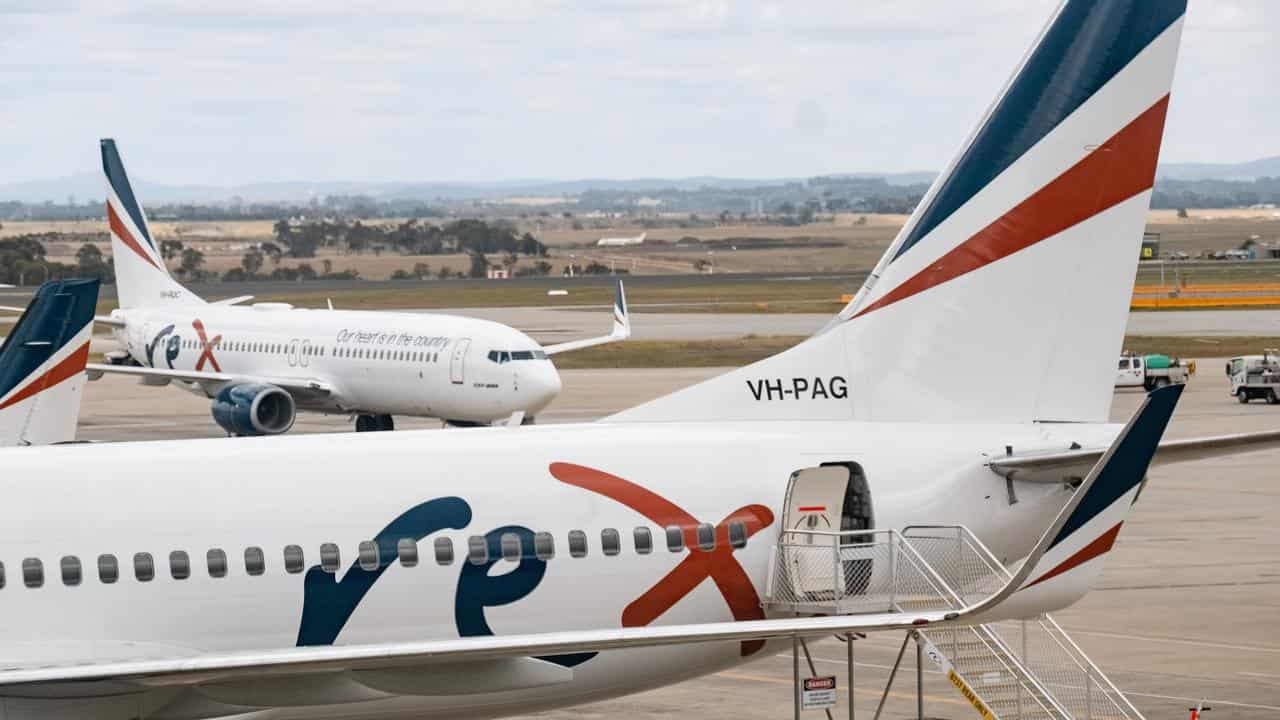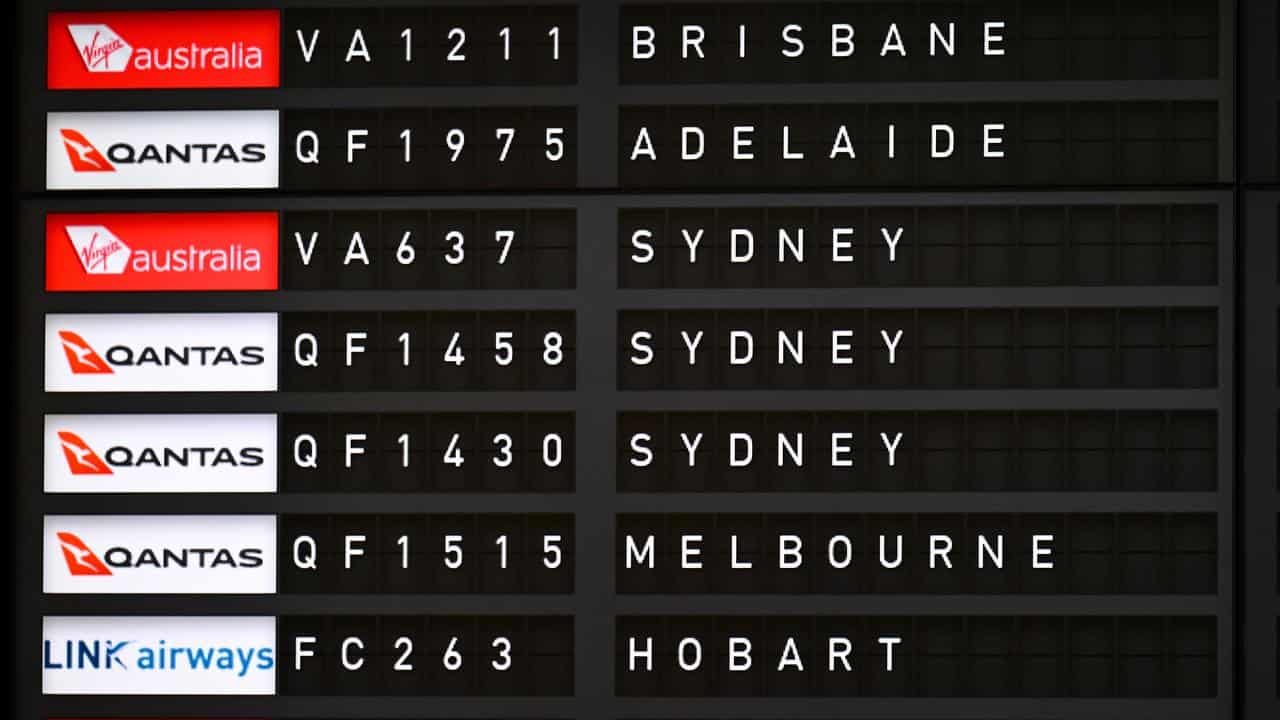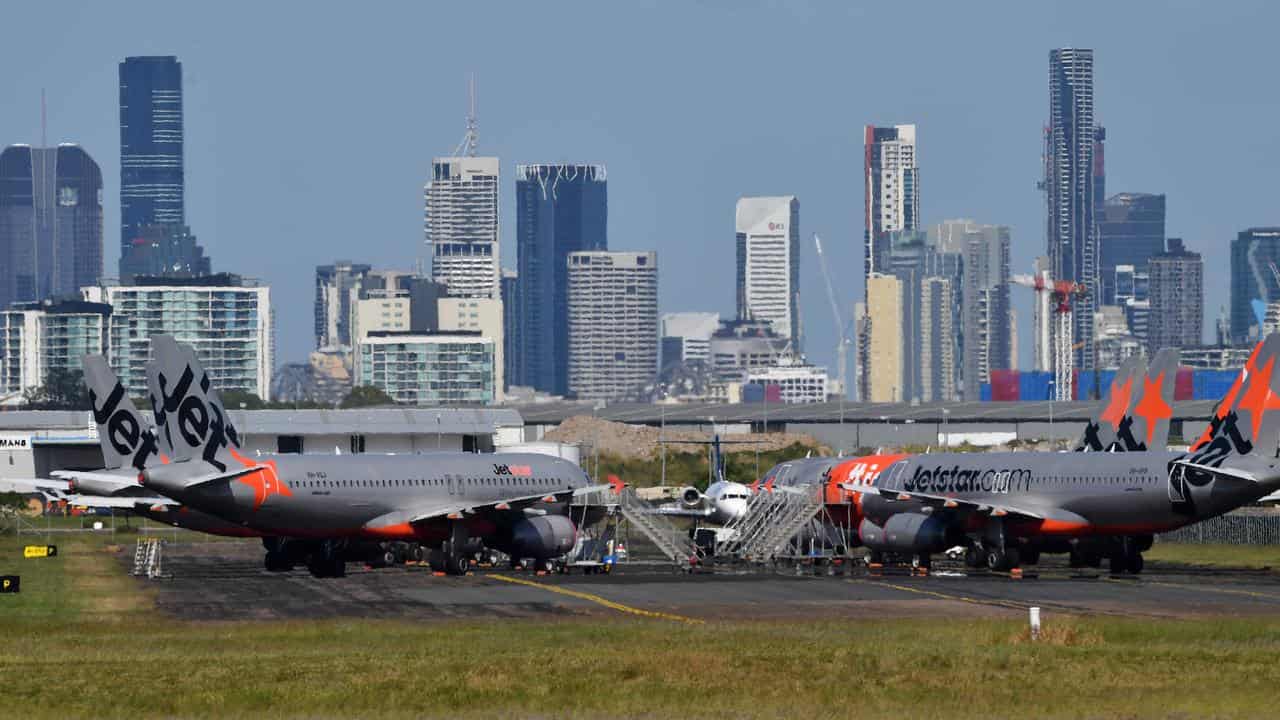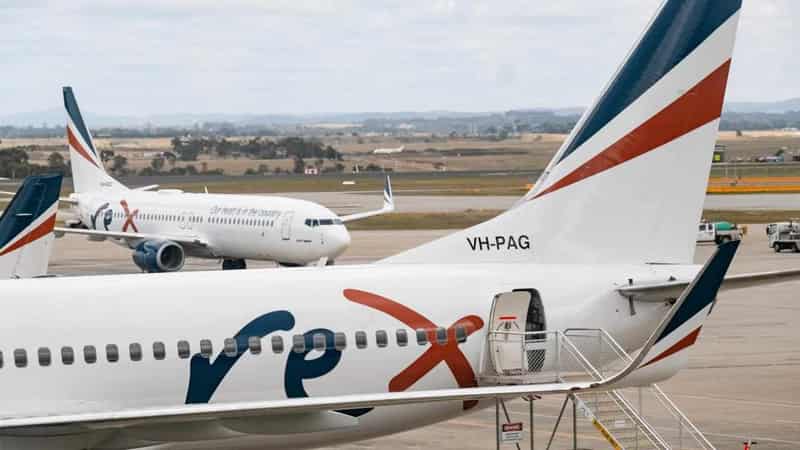
Australia's competition watchdog has warned capital city airfares could take off after the departure of broke challenger Rex.
The regional carrier's entry into the major-cities market in 2021 knocked a quarter off the average price, the Australian Competition and Consumer Commission said on Thursday.
But its absence and the earlier demise of budget carrier Bonza would mean no route would have more than two competing airlines.
The regional airline appointed administrators on July 30 and grounded its Boeing 737 fleet flying between major metropolitan centres as it buckled under $500 million in debt.

Rex's interim overseers from EY Australia have been looking for a buyer and on Friday it will go to court in an attempt to get more time to secure the airline's future.
The federal government has guaranteed all regional flight bookings with Rex and a further bailout has been flagged as long as the carrier prioritises servicing areas outside capital cities.
The ACCC warned the "concentrated" sector was lacking competition with Bonza's collapse and Rex teetering on the brink.
“Airfares are generally lower where there is more competition on a route … when Rex entered several intercity routes in 2021, the average airfare paid per passenger across those routes fell by around 25 per cent,” the watchdog said in its latest airline competition report.
“Should Rex’s intercity services not re-commence, consumers would miss out on the competition that Rex provided with Qantas, (subsidiary) Jetstar and Virgin Australia on 13 major routes."
Rex's administrators had been granted an initial convening period until August 27, but they will appeal to the Federal Court for an extension until no later than November 25.
“It is our current view that the greatest return to creditors is likely to be derived from a sale or recapitalisation of the business as a going concern … more time is required to achieve such an outcome,” they said in a statement.

The administrators said they would have a more-informed view on if all that time would be required in the next fortnight.
But in better news for passengers, the ACCC found domestic and international airfares continued to fall in its latest reporting period.
Domestic route prices dropped 5.2 per cent in June 2024 compared to 12 months earlier, although the ACCC flagged it would watch for movement after Rex's exit.
For the first time in almost four years, Australia's airlines delivered a cancellation rate lower than the long-term industry average.
In May, the cancellation rate was 2.1 per cent, sneaking in below the long-term 2.2 per cent average.
Qantas cancelled flights at a rate of 3.3 per cent in June, the highest rate of any Australian airline.









